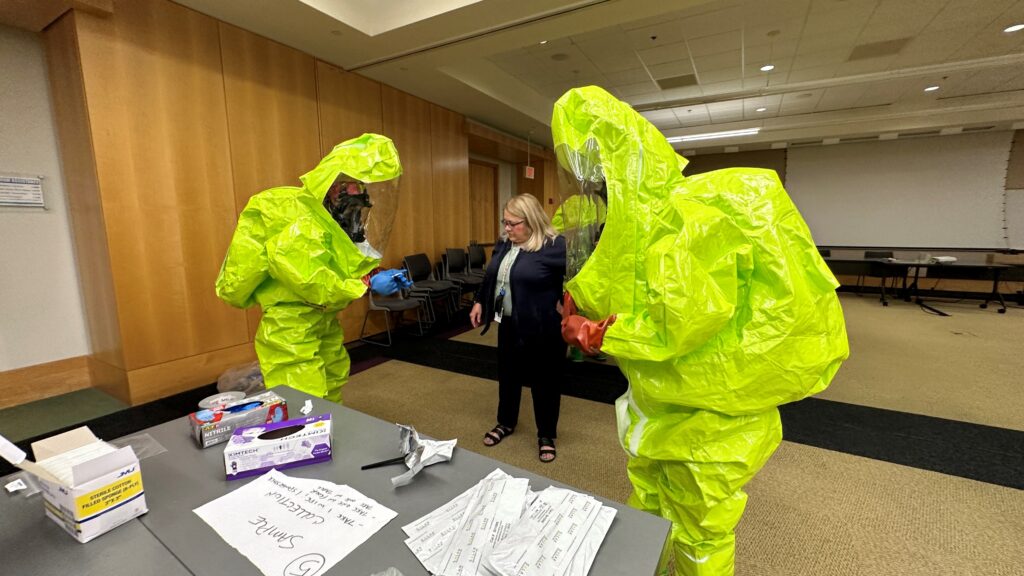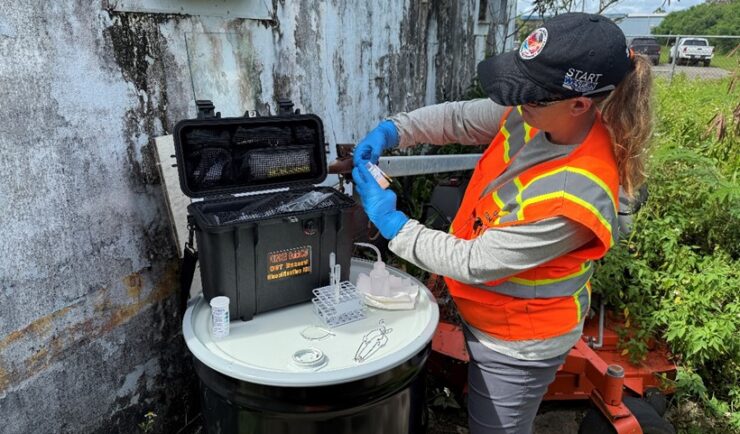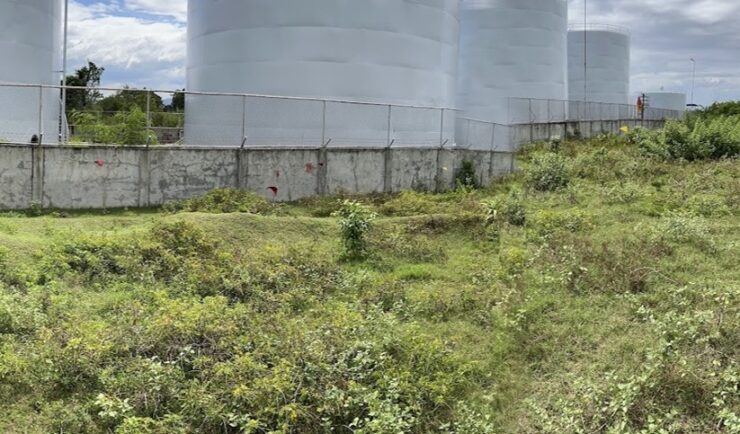

CSS scientists supporting the Environmental Protection Agency’s (EPA) Scientific and Technical Assistance for Consequence Management (STACM) contract are experienced in EPA’s emergency response efforts, both natural and manmade. To help EPA staff prepare for these emergency response efforts, CSS staff provide yearly response training. The training includes review of respiratory protection equipment, operation checks, a review of Level C, B, and A personal protective equipment (PPE). The various levels of PPE required for hazard response personnel provide increasing protection based on the hazardous material personnel are addressing. Level D provides minimum protect required using equipment such as gloves, coveralls, safety glasses, face shields, and chemical-resistant steel-toed shoes. Level A provides the highest level of protection for when the greatest hazard potential exists.
This equipment includes positive pressure, full face-piece self-contained breathing apparatus (SCBA); totally encapsulated chemical- and vapor-protective suit; inner and outer chemical-resistant gloves; and disposable protective suit, gloves, and boots. During the training, CSS staff have EPA personnel with the opportunity to try on and test the Level A PPE to try and complete some dexterity tasks, which adds some fun and entertainment to the training.

See More CSS Insights

Developing a Stream Assessment Protocol
CSS has been a significant contributor to the development and implementation of the Oregon Stream Function Assessment Method (SFAM) for more than 10 years. SFAM is a key component of the Oregon Stream Mitigation Program administered by the Oregon Department of State Lands. The mitigation program is designed to address damage to aquatic resources caused…

Supporting Guam’s Chemical Round Up
Senior chemist working on the CSS contract with the Environmental Protection Agency’s (EPA) Superfund Technical Assessment and Response Team (START) supported the Guam Lab Chemicals Round Up in March of 2024 and July of 2025. During both mobilizations, START supported EPA’s mission to collect chemical waste items from across the U.S. island territory of Guam for off-island transport and disposal. As a field chemist, CSS employee…

Diesel Leak Remediation
Our employee owners have been supporting a remediation project in the Philippines. Diesel fuel leaked from a storage tank and seeped into the groundwater and soil. Emergency measures were taken but clean-up was delayed due to COVID restrictions. After some of the more strict COVID restrictions were lifted, CSS scientists joined the environmental due diligence…
